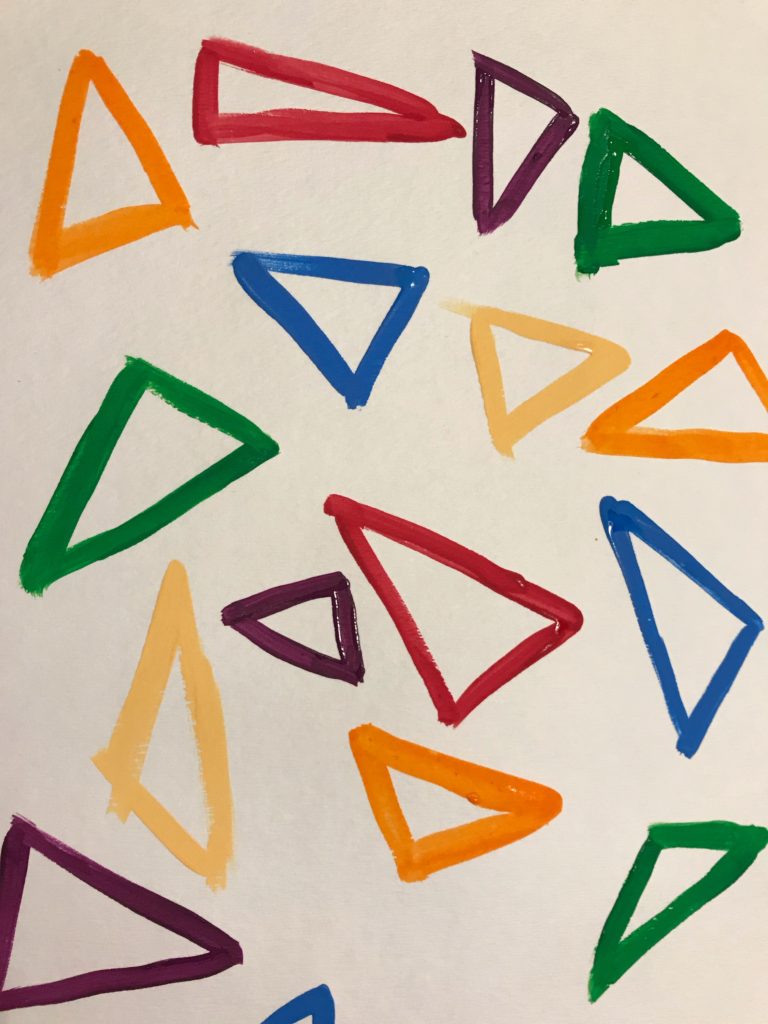
We all have a sort of vague idea of what “romantic love” means. But there are folks who think about love for a living (really!) who can help the rest of us find language to understand and express what we feel—and what we want.
Cornell professor Robert J. Sternberg developed what he calls the “Triangle Theory of Love.” He observes that there are three core elements of romantic love:
Intimacy: The emotional feeling of closeness and connection
Passion: The hot juicy stuff that makes you want to connect with your partner, especially sexually
Decision/Commitment: Deciding that you love the person, and committing to be with them (which don’t always happen at the same time)
A romantic relationship can have any or all of these elements, to a large or small degree, in varying proportions. You can visualize this as a larger or smaller triangle, with each leg the same size or with one or two legs longer than the other.
So, a relationship might be warm and friendly but not sexy. Another might be extremely passionate but involve no commitment. A couple might be committed to each other but live emotionally separate lives. And so on.
Each person will have their own ideal mix. Some folks can’t imagine a life without the excitement of a grand passion; others might be more focused on emotional connection, or on the comfort and stability of a commitment. Or any two of the three. There’s nothing right or wrong about any shape of triangle.
What’s Your Mix?
How does this idea apply to your life, your needs, your preferences?
If you’re not currently in a relationship but someday want to be, what will you be looking for? Which proportions would make you most happy? If one leg had to be shorter, which leg would it be?
If you’re in a relationship, what would its triangle look like? Are you happy with the proportions? How does your partner feel about the mix?
Talk to your partner or your friends about all this. If something’s out of whack, discuss what might be done to get your reality a little closer to your ideal.
Change Over Time
None of this will necessarily stay the same over long periods of time. What’s most important to someone at 25 may matter less, or more, at 55. You’ll change over the years, and that’s fine.
Since relationships don’t happen in a vacuum, the proportions will change as situations change. For instance, parents of young children may find the passion component gets back-burnered for a while and commitment gets bigger. Same when someone has a serious health problem: sex might not be happening, but your commitment will be essential. Or the kids may start becoming more independent or go off to college, and you might find that passion comes rushing back in.
The goal isn’t an “ideal” triangle that’s always the same. Instead, use the triangle theory to explore what matters most to you and keep communication open with the one you love.